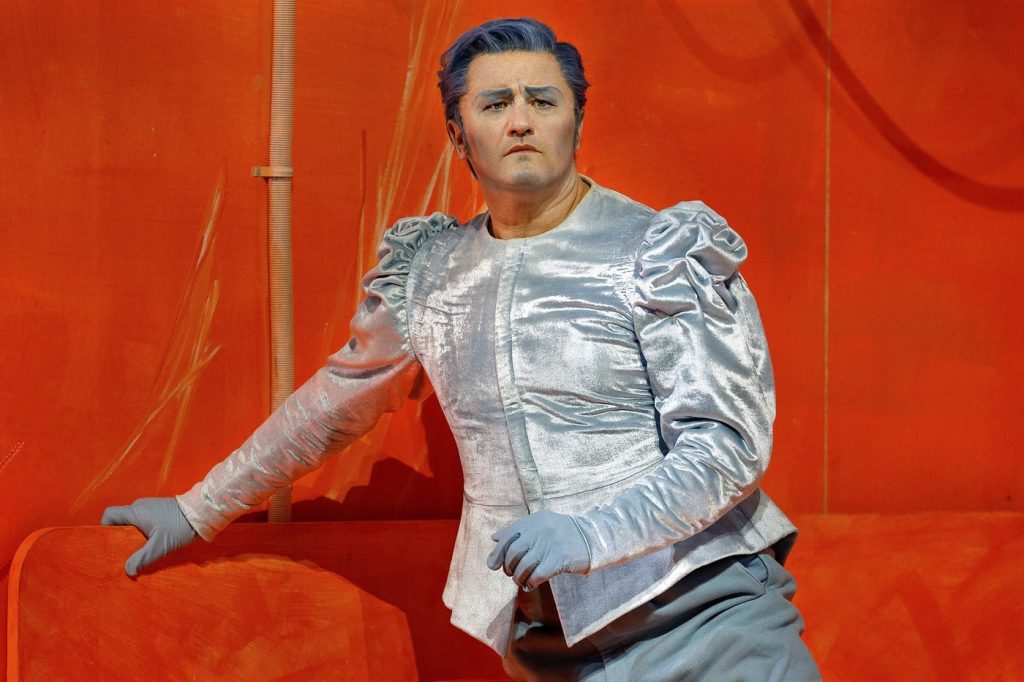BAYREUTH, Germany (AP) — In a remarkable display of stamina and commitment, Polish tenor Piotr Beczala performed the title role of Wagner's Lohengrin at Munich's Bavarian State Opera just 41 hours before appearing in a different production of the same opera at the Bayreuth Festspielhaus, located 150 miles (241 kilometers) away. In the demanding realm of classical music, especially with Wagner's intricate roles, performers typically have breaks of two to three days to allow for vocal recovery. However, Beczala, now 58 years old, earned resounding ovations in both Munich and Bayreuth, showcasing his exceptional talent.
Beczala expressed feeling some pressure ahead of his Bayreuth performance due to the return of renowned conductor Christian Thielemann, with whom he has collaborated previously in 2018 and 2019. He humorously acknowledged the "crazy schedule" he agreed to, highlighting his dedication to delivering a compelling performance.
The preparation for the revival of Yuval Sharon's 2018 production at Bayreuth began on July 12, with four hours allocated for blocking at a studio, followed by an extensive 7.5-hour final dress rehearsal in the iconic auditorium founded on Wagner's specifications. Beczala then traveled to Munich on July 14 for a recital at the 150th Munich Opera Festival, culminating in his late July performances.
As the narrative of Lohengrin unfolds, the titular character arrives to unify the divided people of Brabant and defend the noblewoman Elsa against false accusations. The mysterious knight agrees to marry her, under the stipulation that she must never inquire about his name or origins. Beczala, having portrayed Lohengrin in seven different productions across cities such as Dresden, Vienna, New York, Paris, and Zurich, brings a mature interpretation that adapts seamlessly to various directorial visions. Bavarian State Opera's general director, Serge Dorny, praised Beczala for his meticulous preparation and professionalism.
Both Mundrucz and Sharon have taken artistic liberties, diverging from Wagner's original stage directions, which involved Lohengrin arriving on a boat pulled by a swan. Mundrucz suggested that their interpretation portrays Lohengrin as a figure chosen by the people rather than a divine being. Costumes for the production designed by Anna Axer Fijalkowska reflect a modern twist, featuring Lohengrin dressed in casual attire — jeans and a sweatshirt — rather than traditional medieval garb. Beczala humorously remarked that he often looked more elegant during his flights than in his costume.
The compression of the rehearsal period did not deter revival stage director Anna Brunnlechner, who preferred the intensity and adrenaline of quick preparations over prolonged rehearsals that could lead to excessive discussion of detail. The sets and costumes for Bayreuth, designed by artists Neo Rauch and Rosa Loy, prominently feature shades of Delft Blue, even extending to Beczala’s wig, juxtaposing the character's typically noble appearance with a 1930s aesthetic, suggesting a working-class hero.
Sharon articulated an intriguing perspective on the opera's themes, framing Lohengrin as "the decay of the angel," highlighting the character's transformation from a humble bringer of light to someone overwhelmed by desire and ultimately destructive tendencies in his relationship with Elsa.
Beczala's journey took another turn when he stepped in to replace Roberto Alagna for the 2018 production premiere, just 27 days before the opening night. Assistant director Eva-Maria Abelein lauded Beczala’s exceptional talent and his commitment to the role, even after encountering minor challenges during performances.
In a light-hearted moment, assistant director Wolfgang Schilly provided innovative assistance by creating a discreet water source for Beczala during crucial moments of the performance, demonstrating the collaborative spirit of the cast and crew amidst the demanding production schedule.











